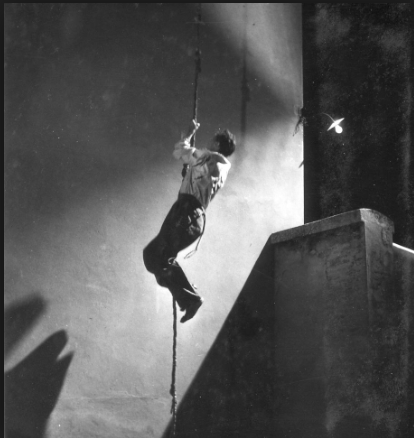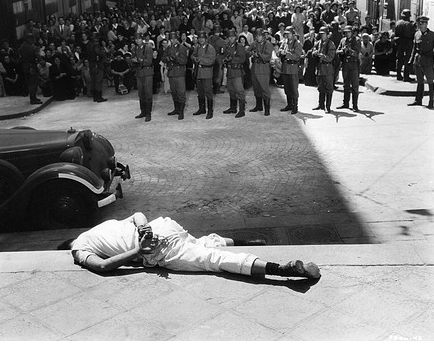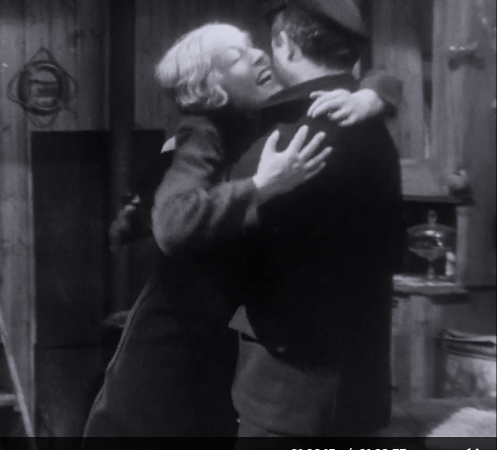Come funziona il blog
Welcome to Li conoscevo bene! Here's how it works:
photo-stories about movies:
Conosciamoli meglio
We post Parte 1 of a cineracconto (photo-story) the first Saturday of a month, with a new puntata (installment) posted each following Saturday. These cineracconti tell the story of the movie in intermediate level Italian for language students.
Guidance on the cineracconti posted before September 2021 (OSSESSIONE): These cineracconti include Vertigo grammar exercises about the movie posted with the final puntata. Glossario words are highlighted in the text and listed alphabetically at the bottom of each puntata. There is a link to the English translation document at the top and bottom of each puntata.
Spoileriamoli meglio grammar exercises about various non-cineracconto movies can be found at the bottom of the Welcome page and in the Archive.
Parte 1 and the current puntata of the current film are posted on the Welcome page at the top. You can find all puntate of each cineracconto on the Film Post Archive page; or scroll through the page called “I film: Conosciamoli meglio.”
On the Welcome page, we post In Arrivo! the next film that we will be writing about.
Style
Hyperlinks are only included in the Italian version of the cineracconti. However, we underline the text in the English translation, to note where the hyperlink can be found in the Italian.
Glossario
Here’s an explanation of the glossary format (for films before September 2021, OSSESSION). We always list the translation for the word as it is used in the cineracconto. Also:
For verbs: the Italian infinitive in parentheses
accoglie (accogliere) – he welcomes
si afferra (afferrarsi) – she clutches
We generally do not include the infinitive for the auxiliaries ‘avere’ or ‘essere’ when they are used to indicate the passato prossimo. And, with the passato prossimo and other compound tenses, we don’t indicate that the main verb is in the past participle, since that is a given.
ha riempito (riempire) – he filled
We do not include ‘essere’ or ‘venire’ when they are used for the passive voice.
From the sentence in the cineracconto: Una grande massa di palloncini viene rilasciata dal soffitto. >>
rilasciata (rilasciare) – released (past participle)
For unmodified nouns, adjectives and other words: the possible endings
scema (o/a/i/e) – stupid girl
le trecce (ia/e) – the braids
– except for the past participle, because it is always o/a/i/e:
battuti (battere) – beaten, defeated (past participle)
Starting with La ragazza in vetrina, we include the root verb with the glossario listing for the present participle as well:barcollante (barcollare) – staggering (present participle as adjective)
splendente (splendere) – bright, shining (present participle as adjective)
This type of present participle adjective always has the e/i endings, so we don’t include the endings in the glossario.
For modified words, only the endings for the word that is modified:
la stazione (e/i) ferroviaria (a/e) – railway station
We don’t list all the possible endings for “ferroviaria” (o/a/i/e).
For nouns introduced by preposizioni articolate (combined prepositions) in the cineracconto, we only list the articles and don’t include the prepositions in the glossario listing.
allo stipite: lo stipite
sulla soglia: la soglia
Words are alphabetized according to the main content word – generally a noun or a verb – without regard for articles, auxiliaries, prepositions, etc., or words like “avere” and “stare” when they are used as grammatical markers that don’t add content.
Words listed in the glossario are not listed again when repeated in new installments of the same film cineracconto (unless there are different meanings for different uses, in which case there will be multiple listings). But they will always be listed again in future cineracconti about other films. We normally aim to use language that can be translated literally. However, there are some common words and phrases that just can’t be translated that way; in these cases we’ve used an English equivalent.
Che c’entriamo (entrare)? – What does it have to do with us?
In a few cases, it’s difficult to convey the meaning without context and we just include the entire sentence in the glossario.
“Io non riesco trovarmi in una grande città”. – “I don’t see myself in the big city.”
We put idiomatic expressions in quotation marks; that is: phrases where the words in combination mean something different from what they mean separately.
“si mettono (mettersi) al lavoro” – they get down to business
“si rode (rodersi) il fegato” – he’s eating his heart out.
English Translation Documents
A link to the English translation document is posted at the top and bottom of each cineracconto installment, pre-September 2021.
Our English translation document is a language-learning tool. We write the Italian version to be at an advanced intermediate (B2) level. That means that the English translation is also written at a simple – i.e., not native speaker – level. So, don’t expect a literary-type translation!
Sometimes the English translation indicates a different meaning from the glossario definition. In these cases, the glossario definition may be a little more generic – so that the student can go on to use the word in other contexts – while the translation reflects a more precise usage in the context of the cineracconto.
Cineracconto: In lontananza, il sole sta cercando di aprirsi un varco tra le nuvole.
Glossario: aprirsi un varco (co/chi) – to open a gap
Translation: In the distance, the sun is trying to break through the clouds.
A note about the dialogue in our Italian movies: The dialogue is written verbatim in the cineracconti as originally spoken in the film, not copied from subtitles. However, to make the story more accessible and useful to students, we do: simplify some lines, adjust non-standard grammar, and translate from dialect into standard Italian. Also, in order to convey the feeling of the Italian language, our English translations sometimes lean toward maintaining the Italian syntax to help students have a feel for the language or to aid them in understanding the structure. We put a lot of effort into writing the most effective translations that we can; you can read more details about our approach to each particular film in the Parte I English translation document of each cineracconto.
Note: We do our best to provide a quality product for Italian language students. We have a rigorous process of editing and proofreading. But occasionally a mistake slips through! If you notice an error, will you please let us know at info@liconoscevobene.net? (And if you have a different opinion about how we translated something, we’d love to discuss that, too!)
GRAMMAR AND FILM:
Poster art by: Saul Bass, Enzo Nistri, Anselmo Ballester, Anselmo Ballester
Vertigo & Io ti salverò!
The examples in the Vertigo grammar exercises are always about the movies in the cineracconti. There is a link to the Vertigo exercises at the bottom of the final installment of the cineracconto. Right next to the Vertigo link, there is a link to the Io ti salverò! answer sheets. These are PDF documents that can be printed out, for students to practice or for teachers to copy and share with their classes.
Spoileriamoli meglio
Spoileriamoi meglio grammar exercises are based on various movies. These exercises, like the Vertigo exercises, are all PDF documents and they can be printed out.
We would love for other Italian teachers to copy and distribute these exercises for classroom use. Just please: don’t alter the original document in any way, including the website URL.
How can I find out about new photo-stories?
Subscribe to get notices of new postings. And follow us on Twitter @IKnewThemWell to get announcements and to see content that we don't post on the blog: photos, clips, links to Italian and English articles about our films and more.
If you have ideas for us or any feedback about the blog, please email us directly at info@liconoscevobene.net. We love to hear from our readers!
An Angel at my Table, Regia di Jane Campion (1990)









